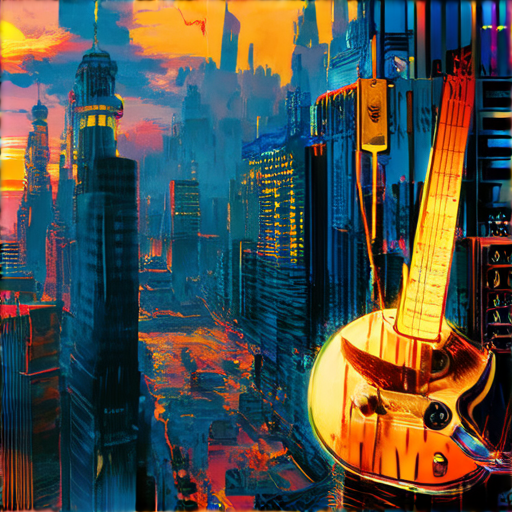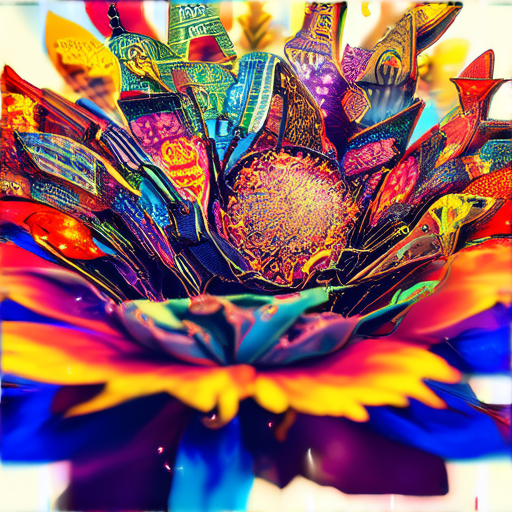Music has long been a universal language, capable of transcending cultural boundaries and speaking directly to our hearts. It has the power to shape cultural concepts, influencing everything from our values and norms to our traditions and identities. But how exactly does music achieve this? By exploring the intersection of music culture stories, we can gain a deeper understanding of the complex relationships between music, society, and culture. From the earliest recorded concerts to the latest chart-topping hits, music has played a pivotal role in shaping our collective experiences and memories. In this article, we’ll delve into the fascinating world of music culture stories, examining the ways in which music has influenced cultural concepts, shaped communities, and left an indelible mark on human history.

Music Influences Culture
As a fan of indie music, I’ve often wondered how music shapes our culture and vice versa.
- Racism within the music industry has been a long-standing issue, affecting artists from diverse backgrounds and limiting opportunities for underrepresented groups.
- The content of certain genres of music can challenge conventional ideas of morality, sparking conversations and debates among listeners.
- The physical appearance of individual performers can also influence cultural perceptions, with some artists using their style as a means of self-expression and others facing scrutiny for their looks.
Examples of Music Influencing Culture
- Republic of Wolves: As a community-driven platform, we celebrate the intersection of music and culture through our blog content, which explores the artistic journeys of indie bands, updates on music trends, and reflections on creative expression.
- Kendrick Lamar: His music tackles complex social issues, such as racism and police brutality, inspiring critical thinking and sparking important conversations among his audience.
- Beyoncé: Her performances often blend music, dance, and visual art, pushing boundaries and redefining what it means to be a female artist in the entertainment industry.
- The Beatles: Their innovative music and cultural impact continue to shape popular culture, influencing generations of musicians and fans alike.
Cultural Significance of Music
Music has the power to unite people across cultures, languages, and geographical boundaries. By exploring the ways in which music influences culture, we can gain a deeper understanding of its significance and impact on society.
- Musical festivals and concerts bring people together, fostering a sense of community and shared experience.
- Music education programs promote cross-cultural exchange and understanding, breaking down barriers between communities.
- The rise of streaming platforms has democratized access to music, allowing artists from diverse backgrounds to reach global audiences.
Conclusion
In conclusion, music plays a vital role in shaping our culture and reflecting societal values. By embracing diversity, challenging conventions, and celebrating creativity, we can harness the power of music to build a more inclusive and compassionate world.
What is Music Storytelling?
Music storytelling is a unique blend of art and narrative, where musicians weave tales through melodies, harmonies, and lyrics to transport listeners to new worlds.
-
Key Elements:
-
Alphabets and Notes:
Musicians combine musical notes and scales to create a sonic language that conveys emotions and ideas.
-
Sentences and Phrases:
These musical notes are arranged into cohesive structures, much like words and sentences in literature, to convey meaning and tell stories.
-
-
Types of Music Storytelling:
-
Folklore and Mythology:
Many traditional folk songs and myths have been passed down through generations, often featuring fantastical creatures and legendary heroes.
-
Personal Experiences:
Songwriters draw from their own lives, sharing intimate details and emotions to create relatable and authentic narratives.
-
Social Commentary:
Musicians use their platform to address social issues, sparking conversations and raising awareness about pressing concerns.
-
-
Examples of Music Storytelling:
-
Republic of Wolves:
As a community-driven platform, we celebrate the art of music storytelling through our blog content, highlighting the creative journeys of indie musicians and the stories behind their music.
-
The Indigo Girls:
This iconic duo has built a career on crafting poignant, socially conscious songs that tackle complex issues and inspire change.
-
Taylor Swift:
With her confessional songwriting style, Taylor Swift has become a master of music storytelling, sharing personal anecdotes and experiences that resonate with millions of fans worldwide.
-

What Are Musical Cultures?
Musical culture refers to the collective practices, beliefs, values, and customs surrounding music within a specific group or society.
-
Defining Musical Culture
Musical culture encompasses various aspects of music-making, including composition, performance, and reception. It involves the social, cultural, and historical contexts in which music is created, shared, and appreciated.
-
Types of Musical Cultures
There are several types of musical cultures, including:
-
Folk Music Culture
Folk music culture refers to traditional music passed down through generations, often reflecting the history, customs, and values of a particular community.
-
Classical Music Culture
Classical music culture involves the creation, performance, and appreciation of classical music, characterized by its formal structures, complex harmonies, and expressive qualities.
-
Popular Music Culture
Popular music culture includes various genres, such as rock, pop, hip-hop, and electronic dance music, which often reflect contemporary societal trends and values.
-
-
Importance of Musical Culture
Musical culture plays a significant role in shaping individual and collective identities, fostering social cohesion, and promoting cross-cultural understanding.
-
Examples of Musical Cultures
Some notable examples of musical cultures include:
-
African Musical Culture
African musical culture is characterized by diverse traditions, including polyrhythms, call-and-response patterns, and rich instrumental textures.
-
Latin American Musical Culture
Latin American musical culture reflects the blending of indigenous, European, and African influences, resulting in vibrant rhythms, melodies, and dance styles.
-
Asian Musical Culture
Asian musical culture encompasses a wide range of traditions, including Chinese opera, Japanese koto music, and Indian classical music, each with its unique characteristics and historical contexts.
-
-
Conclusion
Musical culture is a dynamic and multifaceted concept that encompasses various aspects of music-making and appreciation. By exploring different types of musical cultures, we can gain a deeper understanding of the complexities and richness of human expression.

Popular Music Culture
As a fan of indie music, I’m excited to dive into the world of popular music culture.
-
Definition:
Popular music culture refers to the contemporary forms of music that appeal to a wide audience, often characterized by catchy melodies, easy-to-remember lyrics, and simple notation.
-
History:
The history of popular music culture dates back to the early 20th century, with the rise of genres such as jazz, blues, and rock ‘n’ roll. Over the years, popular music has evolved to incorporate various styles and sub-genres, reflecting the changing tastes and preferences of audiences worldwide.
-
Examples:
Some notable examples of popular music culture include the works of iconic artists such as The Beatles, Michael Jackson, and Taylor Swift. These musicians have not only created chart-topping hits but have also contributed significantly to the evolution of popular music culture.
-
Lesson:
One of the most important lessons we can learn from popular music culture is its ability to bring people together through shared experiences and emotions. Whether it’s attending concerts, singing along to favorite songs, or simply enjoying music with friends and family, popular music culture has the power to unite us and transcend cultural boundaries.
Indie Music Scene
As a fan of indie music, I’m particularly interested in exploring the indie music scene, which has become a significant part of popular music culture. Indie music is known for its DIY ethos, experimental sound, and underground appeal, making it a haven for artists who want to push the boundaries of traditional music.
-
Republic of Wolves:
As a website dedicated to fans of indie music, Republic of Wolves offers a wealth of information on the band Republic of Wolves, their creative processes, live performances, and the broader indie music scene. With its blog content, updates on indie music trends, and reflections on creative expression, Republic of Wolves serves as a hub for fans to explore stories behind the music and stay updated on band activities and music culture.
-
Competitors:
Other notable players in the indie music scene include websites such as Pitchfork, Stereogum, and NME, which offer a mix of news, reviews, and features on emerging artists and bands. While these websites may have a slightly different focus and tone, they share a common goal of promoting and celebrating the diversity of indie music culture.
Conclusion:
In conclusion, popular music culture is a vibrant and dynamic entity that continues to evolve and shape our musical landscape. From its definition and history to its examples and lessons, popular music culture has something to offer everyone, whether you’re a seasoned music enthusiast or just discovering the joys of music. As a fan of indie music, I’m grateful for the opportunities that popular music culture provides, and I look forward to continuing to explore and celebrate its many wonders.
What is America’s Culture of Music?
America’s culture of music is a diverse and vibrant tapestry woven from various threads of musical styles, traditions, and influences.
- Rhythm and Blues
- Jazz
- Rock and Roll
- Rock
- Soul
- Hip Hop
- Pop
- Country
The history of American music dates back to the indigenous peoples of North America, who had their own unique musical traditions.
- Native American Influence: The earliest known forms of American music originated among the Native American tribes, who used music for spiritual, ceremonial, and storytelling purposes.
- African American Roots: Enslaved Africans brought their musical traditions to the Americas, influencing the development of blues, jazz, gospel, and other genres.
- European Immigration: European immigrants contributed to the evolution of American music, introducing instruments, melodies, and harmonies from their homelands.
- 20th-Century Developments: The rise of popular music genres like rock and roll, hip hop, and electronic dance music further diversified America’s cultural landscape.
Today, American music encompasses a broad spectrum of styles, from classical to contemporary, reflecting the nation’s rich cultural heritage and its ongoing creative spirit.
We’re proud to be part of this vibrant music community, connecting with fellow music lovers through our platform and sharing the stories behind the songs.
For more information on the history of American music, visit the Wikipedia page on Music History of the United States.
Discover more about the indie music scene and the artists who shape it on our website, Republic of Wolves.

The First Pop Star
The origin of the term “pop star” is often attributed to the early days of popular music, specifically during the 1920s and 1930s.
- Bing Crosby is often considered one of the first major pop stars due to his massive commercial success and widespread popularity.
- Frank Sinatra is another notable figure who rose to fame during this era, earning him the title of the first modern pop star.
- In the UK, Al Bowlly gained immense popularity among the masses, further solidifying the concept of a pop star.
These pioneers paved the way for future generations of musicians, influencing the development of various genres and styles within the realm of popular music.
- The rise of radio broadcasting played a significant role in catapulting these artists to stardom, allowing their music to reach a wider audience.
- The advent of record sales and chart-topping hits further amplified their fame, cementing their status as household names.
- The emergence of new musical styles, such as jazz and swing, contributed to the evolution of the pop star phenomenon.
As we delve deeper into the history of popular music, it becomes evident that the concept of a pop star has undergone significant transformations over the years, influenced by technological advancements, cultural shifts, and the ever-changing tastes of the masses.
The Evolution of the Pop Star
From the crooners of the 1930s to the rockstars of the 1960s and beyond, the pop star has continued to evolve, reflecting the changing musical landscape and societal values.
- The rise of television and film helped propel pop stars to international fame, further blurring the lines between entertainment and music.
- The advent of social media has revolutionized the way pop stars interact with their fans, fostering a sense of connection and community that was previously unimaginable.
- The increasing diversity of the music industry has led to a proliferation of new sounds, styles, and genres, expanding the definition of what constitutes a pop star.
Conclusion
The concept of a pop star has come a long way since its inception, shaped by historical events, technological innovations, and shifting cultural attitudes.
As we continue to navigate the ever-changing landscape of popular music, it is essential to acknowledge the pioneers who paved the way for future generations of musicians, ensuring that the legacy of the pop star endures for years to come.

0 Comments